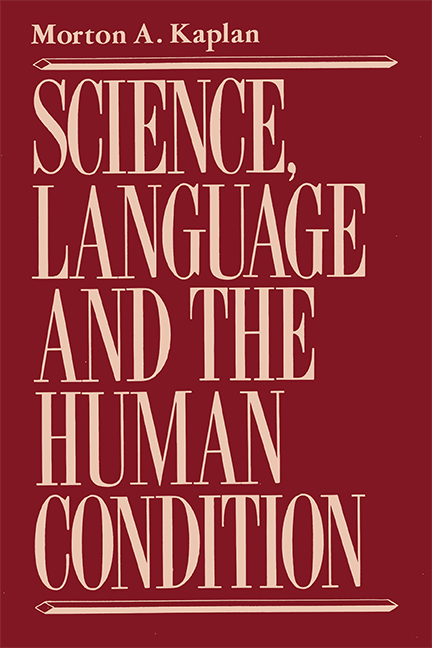
“This is an enormously rich book.... Professor Kaplan masters an incredibly wide field of knowledge...his book will be of use to many scientists interested in the broader aspects of the relation between science and man.”–Gerhard Vollmer, Biophilosophy, University of Giessen, West Germany
“This is a superb volume, deeply thought through and will make a great contribution to the philosophy of thought and to the sciences!”–Karl H. Pribram, Neuroscience, Stanford University
"...Kaplan's philosophical project inclines toward epistemological, ontological, and moral stability, coherence, and interconnectedness. He has a philosophy of seams, not gaps; of engagements, not entrapments. Kaplan articulates an ethics that refuses to hedge against the obligations that bind people together and define us as human persons deeply implicated in each other's moral lives in ways that transcend mere utility and circumstance. Kaplan's project, then, should appeal to those who seek moral order,..."—David D. Cooper, Michigan State University, Journal of Interdisciplinary Studies
“Kaplan takes issue with Popper, Wittgenstein, Kripke, and Putnam for their attempt to found science upon a universal agreement.... This book is to be greatly welcomed, both for its following the continental tradition of boldly ignoring academic boundaries and for its uncontinental use of a clear and readable style which opens it up to readers on all sides of those boundaries.”–Edmond Wright, Philosophy, Pembroke College, Oxford University
In this book, which integrates philosophy of science with language theory, Kaplan argues that every method of inquiry, including inquiry into language, requires supplementation by complementary approaches. Philosophers who attempt to confine analysis to a global method including those whose positions are opposed such as Kuhn and Popper, Quine and Kripke, Wittgenstein and Derrida, and Karl Marx and Milton Friedman–convert partial truths into world views that distort our understanding. These partial views obscure the natural foundation of human values. The approach used by Kaplan permits him to show how and why moral analysis is objective and to restore humans to their natural place in the universe.
This book is of interest to philosophers, social scientists, scientists, and humanists because the world view it propounds has important implications for understanding persisting problems in each of their areas of inquiry. Kaplan calls his approach “analytical pragmatism.”
TABLE OF CONTENTS
Introduction
Glossary
PART ONE SCIENCE: PRELIMINARY CONSIDERATIONS
1 The Problem of Circularity
2 Initial Considerations
3 Systems and the Scope of Theory
4 Meaning, Science, and Reality
5 Theory and Praxis
6 Realism and Assessment
7 Indeterminacy, Intentionality, and Consciousness
PART TWO ANTITHETICAL VIEWS OF LANGUAGE
8 Language, Reality, and Communication
9 Language Games
10 Deconstruction: An Alternative to Science
PART THREE THE OBJECTIVITY OF THE REALM OF VALUES
11 The Good
12 General Theories of Ethics
13 An Approach to Ethics
PART FOUR THE SOCIAL SCIENCES
14 The Marxian Heritage
15 The Spirit of Marx's Writings
16 A Contemporary Social Science: Economics
17 International Relations
Epilogue
Appendix I
Appendix II
Index
MORTON A. KAPLAN is an internationally noted professor emeritus at the University of Chicago, whose books cover a wide reande of topics in philosophy and the theory of the social sciences.



